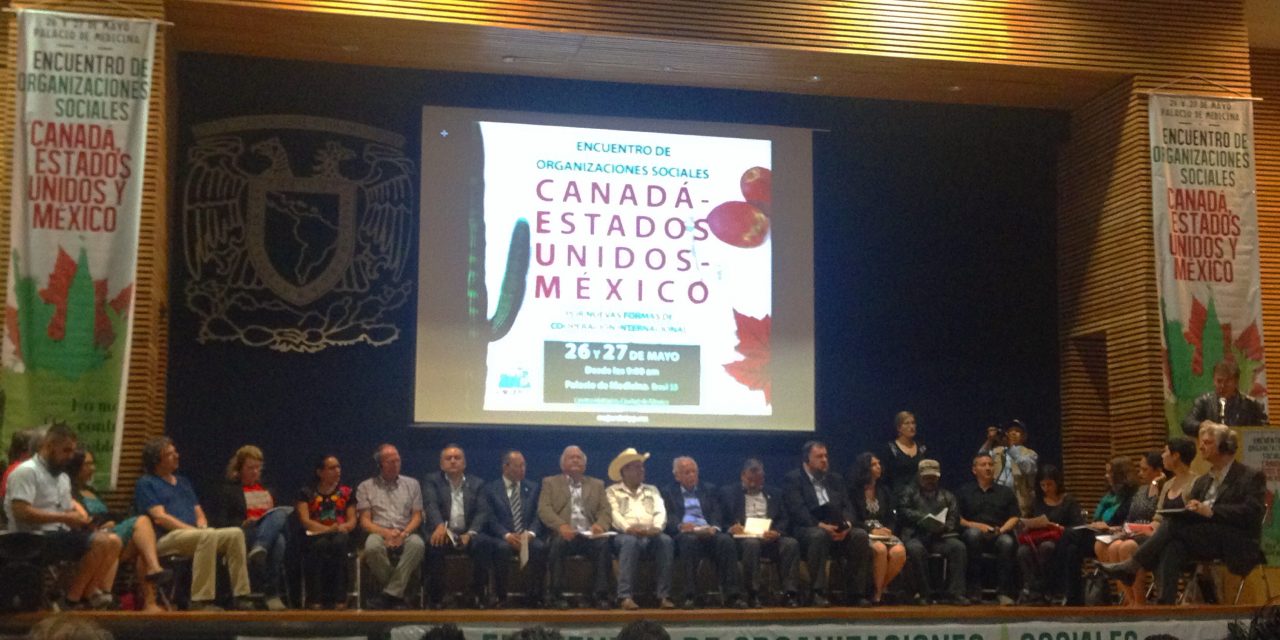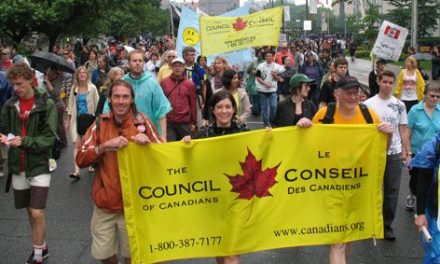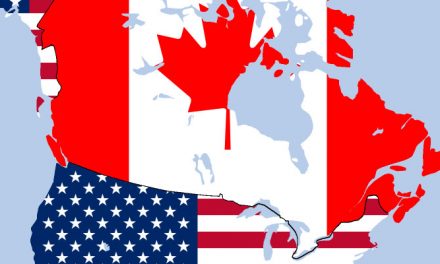Trade Justice Network participates in tri-national NAFTA meetings in Mexico City
MEXICO CITY — On May 25-27th, the Trade Justice Network (TJN) participated in a tri-national meeting of social organizations from Canada, Quebec, the US and Mexico ahead of the North American Free Trade Agreement (NAFTA) renegotiations.
Over 300 people gathered in the stunning Palacio de Medicina in the heart of Mexico City to discuss the impacts of NAFTA and to develop coordinated strategies for moving forward. Participants included representatives of labour, environmental, agricultural/farming, Indigenous, migrant, feminist, education, human rights, social justice and other civil society organizations.
The Canada and Quebec delegation included representatives from Common Frontiers, the Council of Canadians, Réseau Québécois sur l’intégration continentale (RQIC), the Canadian Labour Congress, Unifor, the Canadian Union of Public and General Employees (CUPE) National, the United Steelworkers, Public Service Alliance of Canada, BC Teachers Federation, Fonds de solidarité (FTQ), Confédération des syndicats nationaux (CSN), Centro international de solidarité ouvrière (CiSO), the National Farmers Union, and the Canadian Centre for Policy Alternatives, many of which are member organizations of the TJN. Elected officials lent their support to the meetings of the tri-national coalition, including MP and Green Party Leader Elizabeth May (via video), Amir Khadir of the National Assembly of Quebec, and Ana Collins (representing MP Romeo Saganash).
During the public portion of the meetings, including a press conference, we heard from both expert researchers and on-the-ground organizers and workers on the effects of NAFTA in all three countries. While NAFTA has had negative impacts on workers, farmers, and the environment across the continent, there is no question that Mexico has suffered most greatly. A statement by Mexican social movement organizations noted that “NAFTA has been a source of poverty and inequality, deprivation of natural resources and loss of land of campesinos and Indigenous peoples.”
Beyond simply criticizing NAFTA, a common sentiment in the civil society meetings was the need to oppose the current model of international trade and the neoliberal political economic model which underlies it. However, in opposing (or calling for alternatives to) NAFTA, participants—particularly those from Mexico—were sure to emphasize that they did not espouse isolationism or nationalism. Instead, many proposed an alternative model for economic integration to the current one represented by NAFTA.
Such an alternative model must be based on principles that have largely disappeared from the current international trade regime: democratic participation, transparency and the guarantee of the rights of workers, the environment and all peoples.
Constituting a strong and diverse delegation, representatives of Canadian and Quebec organizations called for the protection of labour rights (including those of migrant workers), human rights, farmers and rural communities, public education, public services, Indigenous rights and knowledge, and the environment in any new agreement.
Although there were different perspectives on whether to participate in the NAFTA renegotiation process or to call for eliminating the agreement altogether, there was consensus on a vital point: the need for tri-national solidarity. This involves denouncing the nationalist and xenophobic rhetoric that has resurfaced with Donald Trump and recognizing that it is the current model of international trade—which expands investor/corporate rights at the expense of workers, public services, Indigenous sovereignty, the environment and democracy—that has harmed peoples across the continent; it is not our neighbours who should be the target of our frustration.
Rather than falling into an us-versus-them dynamic, we must come together at this important political juncture to demand a trade relationship that puts people and the environment at the centre. We must work together across sectors and across borders to form a political movement that is diverse, inclusive and unified.
In a joint statement that came out of the three days of meetings, participants declared a commitment to tri-national solidarity and the implementation of a tri-national action plan, the seeds of which were sown during the meetings. The coordinated action plan, including strategies for mobilization, campaigns, political action, and proposals, aims to effect change in the international trade regime and develop alternatives for fairer economic integration and sustainable development.
Read the full text of the tri-national declaration here: Tri-national Declaration






